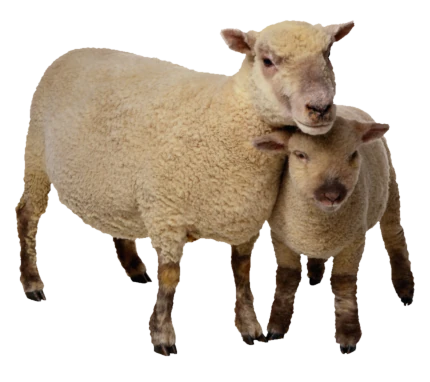A beautiful achievement for animals and plant nutrition.
Students at two of the UK’s most prestigious universities have voted in favor of transitioning to all-vegetable campus dining, following a campaign by the group Plant Based Universities. The decision was made through voting that took place on Feb. 4. Since that time, other universities, including Cambridge, Newcastle, Lancaster and University College London, have already held similar votes.
Vegan menus in universities
But the initiative is not only from students in the United Kingdom. There are 13 other universities in the United Kingdom, the Netherlands and Austria that support a vegan menu.
As reported by Plant Based News, Agnes Sales, a Plant-Based Universities campaigner at the University of Bristol, said: “This report into university catering is, yet another, key piece of support for higher education to step up and do their duty in the face of the climate crisis […] 100 percent plant-based menus would represent a vital and common sense step towards campus sustainability“.
Why a vegan diet is better
The report reveals that plant-based meals are not only more affordable than meat-based and vegetarian options, but also perform better in terms of several environmental factors.
On average, vegetarian meals are 11 percent less expensive than meat-based ones, while fully plant-based meals were 30 percent cheaper. For instance, a beef lasagna with garlic cheese bread, fries, and a side salad had a wholesale cost of around £4.66, whereas a beetroot and chickpea burger with avocado and sweet potato fries cost just £1.51. If a mid-sized university switched to entirely plant-based meals, it could save approximately £500,000 annually in procurement costs.
The benefits for the environment as well
A study published in Nature shows that the environmental impact of animal-based foods is generally higher than that of plant-based foods. This fact depends on processes related to livestock management (e.g., methane production by ruminants) and indirect processes such as the use of crops for animal feed rather than directly for human consumption.
Also, the environmental impact of CO2 emissions for vegans are 30.3 percent higher than those of the more carnivorous group. Emissions of CH4, a greenhouse gas is predominantly associated with ruminant livestock, and, in fact, CH4 emissions from meat eaters were 15.3 times higher than those from vegan diets.
So it is with land use, the impact of the vegan diet is 43.8 percent lower than that of the predominantly carnivorous diet, while on water consumption, the difference is 27 percent.
OIPA’s commitment
On the occasion of the last food day (October, 16th), OIPA highlighted how, according to Eurispes’ Italy 2024 Report, 7.2% of Italians have chosen to follow a vegetarian diet, while 2.3% declare themselves vegan. Thus, 9.5 percent of the population has chosen not to eat animals, compared to 6.6 percent recorded in 2023 (+2.9 percent).
An ethical and sustainable food indicates an awareness of the big pain of sentient beings contained in factory farms and slaughterhouses, as well as the havoc wreaked on the sea and their inhabitants by fishing.
Source: OIPA – International Organization for Animal Protection (a non-governmental and non-profit animal welfare organization that works in defence of animal rights and for the protection of animals from cruelty, abuse and exploitation at worldwide level)

